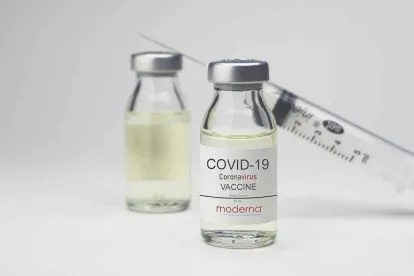As we previously reported, the Centers for Medicare and Medicaid Services’ (CMS) interim final rule (“the Rule”) requiring full COVID-19 vaccination for staff and others at Medicare- and Medicaid-certified providers and suppliers (i.e., the “vaccine mandate”) has been challenged in the U.S. District Courts for the Eastern District of Missouri (“the Missouri Court”) and the Western District of Louisiana, Monroe Division (“the Louisiana Court”). As of the date of this writing, both Courts have granted preliminary injunctions placing the Rule on hold.
On November 29, 2021, the Missouri Court granted a preliminary injunction of the Rule, which applies to the coalition of ten states [1] that filed the challenge there. The following day, the Louisiana Court entered a similar injunction, which applies to the remaining forty states.
The Decisions
In enjoining the vaccine mandate, the Courts found that the Plaintiff States’ [2] challenges to the Rule are likely to succeed on the merits. First, the Courts found that given the economic and political significance of the mandate as well as the ramifications surrounding the federal and state governments’ authority, CMS does not have the authority to implement the vaccine mandate, absent specific Congressional authorization. The Courts also found that CMS improperly implemented the Rule without going through the notice and comment procedure set forth in the Administrative Procedure Act (APA).
Second, the Courts held that the Plaintiff States would likely establish that the Rule is arbitrary and capricious. They found it troubling that CMS offered no alternatives to the vaccine mandate and expressed concern about the Rule’s broad application to covered facilities as well as the potential negative effects the Rule would have on the medical industry’s current staff shortages.
Third, the Courts found a likelihood of irreparable harm because the Rule preempts state and local laws. The Courts held that the Plaintiff States have an interest in the health and well-being of their residents, and the vaccine mandate would have a “detrimental effect” on the health of their citizens, particularly in light of medical staff shortages. Lastly, the Courts held that the public would benefit from an injunction because it would ensure that federal agencies do not act beyond their scope and that individuals retain the liberty to choose whether to receive a COVID-19 vaccine.
Predictably, in its decision, the Louisiana Court, which is located in the Fifth Circuit, relied primarily on the U.S. Court of Appeals for the Fifth Circuit’s stay of the OSHA vaccination Emergency Temporary Standard (ETS), reported here.
Of additional note, in the Missouri Court case, Judge Schelp separately opined that a CMS vaccine mandate might be appropriate in long-term care facilities, but that CMS lacked sufficient evidence to support the Rule as to other health care providers.
What to Expect Going Forward
The Federal Defendants [3] in both cases have filed notices of appeal, which will be heard by the U.S. Court of Appeals for the Eighth Circuit for the Missouri Court case, and the Fifth Circuit Court of Appeals for the Louisiana Court case. While the Rule’s future is litigated, covered facilities may nevertheless want to continue to prepare the policies and procedures to comply with the Rule to be in a position to promptly implement them should the stays be lifted. In addition, covered facilities should be cautious about taking adverse employment actions based on employees’ non-compliance with vaccination requirements, particularly in those states with laws and executive orders mandating exemptions for employment-related vaccination requirements.
[1] Those states include Missouri, Nebraska, Arkansas, Kansas, Iowa, Wyoming, Alaska, South Dakota, North Dakota, and New Hampshire.
[2] “Plaintiff States” refers to the combined twenty-four states in both cases: Alabama, Alaska, Arizona, Arkansas, Georgia, Idaho, Indiana, Iowa, Kansas, Kentucky, Louisiana, Mississippi, Missouri, Montana, Nebraska, New Hampshire, North Dakota, Ohio, Oklahoma, South Carolina, South Dakota, Utah, West Virginia and Wyoming.
[3] The “Federal Defendants” refers to: the United States, President Joseph R. Biden, Jr., Secretary of the U.S. Department of Health and Human Services Xavier Becerra, CMS, Administrator for the CMS Chiquita Brooks-LaSure, Deputy Administrator of CMS Meena Seshamani, Deputy Administrator and Director of Center for Medicaid and CHIP Services Daniel Tsai, and the U.S. Department of Health and Human Services.





 />i
/>i

